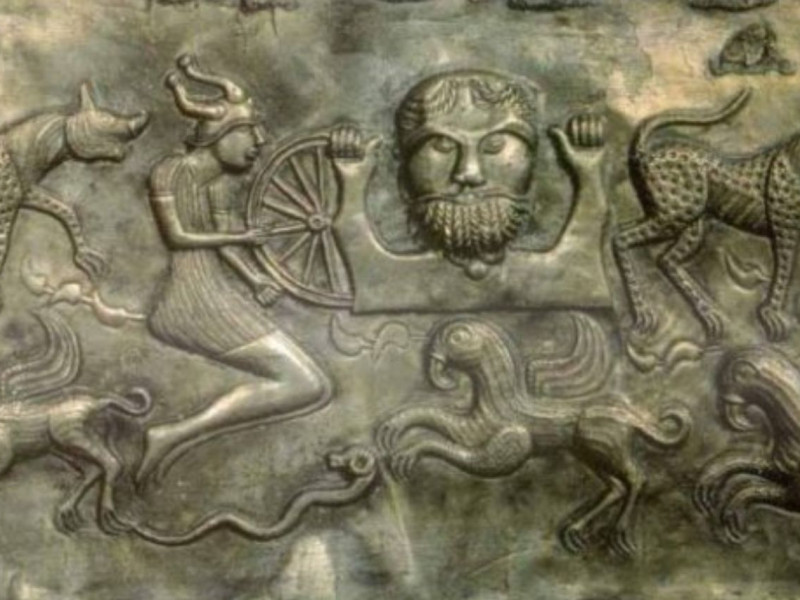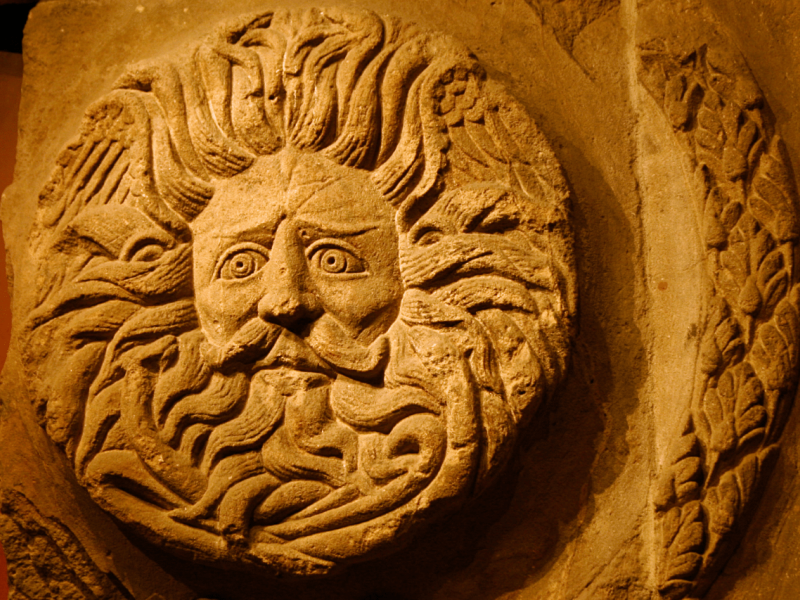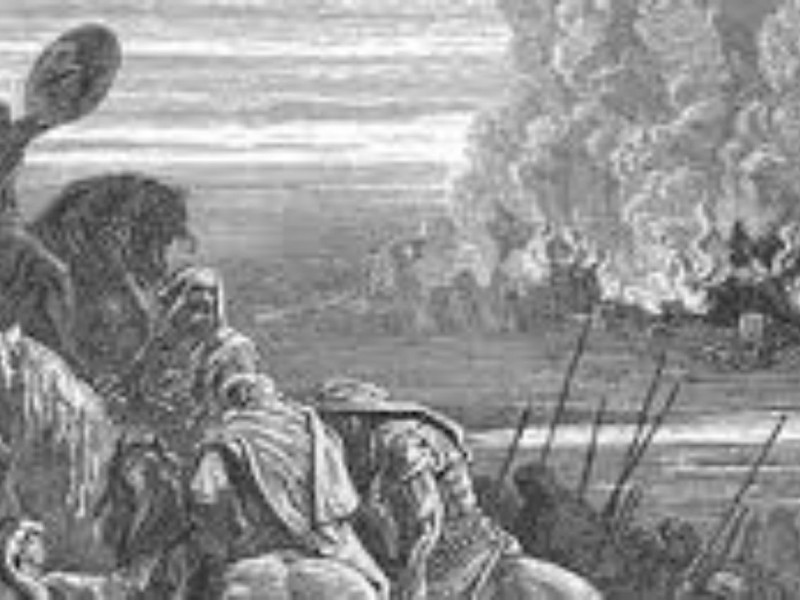Manannán Mac Lir
Sea god. Manannán (Manannan) was said to be the son of Lir, who was also a god of the sea. Manannán supplanted his father in his role as a sea god. However, in the Book of Invasions, Manannán was actually the son of Allod (I haven't figured out who Allod was). Allod was a son of Elada (Elatha), so that would make him (Allod) a brother of Dagda and Ogma.
Manannán also seemed to have control over the weather, but his powers were probably confined to the sea. Manannán was also a healer and a mighty sorcerer.
Manannán probably had a daughter named Tailtiu (Taillte) who became the foster mother of Lugh. Usually Tailtu was said to be the daughter of the King of the Great Plain and the wife of Firbolg king, Eochaidh Mac Erc. Manannán was also believed to be the father of Mongán, the reincarnation of Finn Mac Cumhaill.
Manannán married a beautiful Danann woman named Fand, who had affair with the Ulster hero, Cu Chulainn.
Manannán was also married to Aife (Aiofe), who had been transformed into a crane. Aife was killed and her skin was used to create a magic treasure bag, which would later belong to Finn and the Clan Bascna in the Fenian Cycle.
Manannán was either a lover or husband of Aine, the sun goddess of love.
Manannán lived in the "Land of Promise" or "Land of Youth". Manannán possessed the ship called "Wave-sweeper"; a vessel that could steer itself by his thoughts and move without the need of oars or wind. Manannán could also drive his chariot over water, drawn by two magical horses. Manannán sometimes wielded the "Answerer", the sword given to Lugh Lamfada.
Manannán was the patron god of the Tuatha Dé Danann. When the Dananns were defeated in battle against the Milesians, it was Manannán who led either led one to the "Land of Youth" (Otherworld or Sidhe). There lived the magic swine that Manannán owned, and which kept the Tuatha Dé Danann young. Each day the swine was killed and roasted for the Dananns to eat, and at the end of each day the swine returned to life, only to be killed and eaten again the next day.
Manannán was also called Manawyddan by the Welsh. In the Welsh myths, he was the son of Llyr (Irish Lir) and the brother of the god Brân.
Related Information
Name
Manannan, Manandan (Irish).
Manawyddan (Welsh).
Related Articles
By Jimmy Joe





